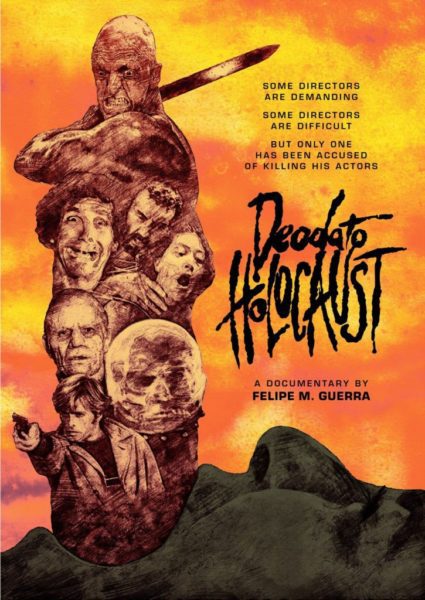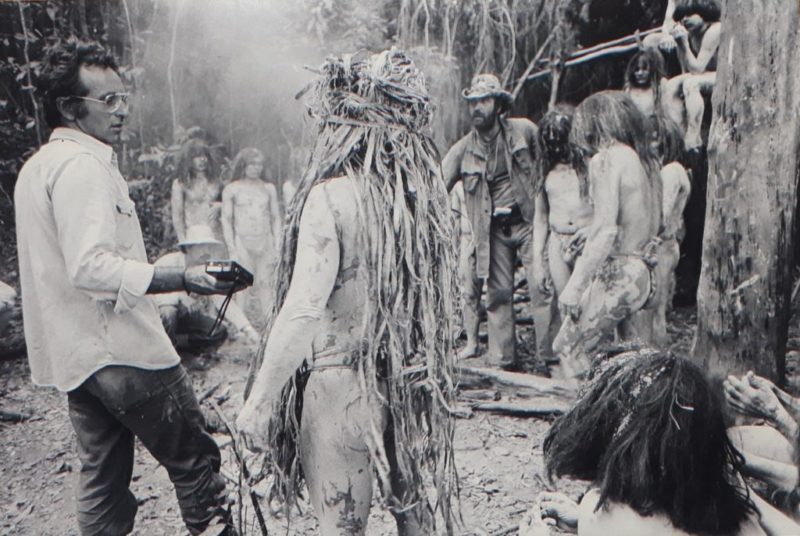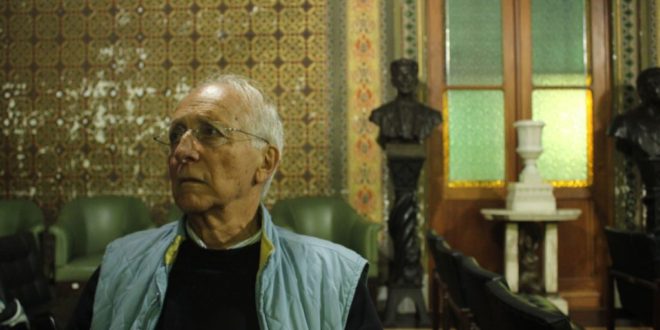As a horror fanatic, probably the first thing that springs to mind when you hear the name Ruggero Deodato is Cannibal Holocaust. It’s perfectly natural, crafting one of the most controversial films in history does tend to define your reputation.
Admittedly, it was primarily the only place I really knew him from myself. That’s what makes the 2019 documentary Deodato Holocaust so excitingly vital. If, like me, your knowledge of this cinematic visionary begins and ends with his oft maligned masterstroke, this film will help fill in the gaps on his illustrious career. Pull up a chair, class is in session.

The creation of Brazilian filmmaker Felipe M. Guerra, Deodata Holocaust is a thorough, extensive look at the highly prolific career of the Italian maestro. Born and raised in Rome, Ruggero certainly grew up surrounded with beauty and the arts. At a young age, he befriended Renzo Rossellini, who turned out to be the son of legendary master filmmaker Roberto Rossellini. Ruggero got his start in the film industry assistant directing for Rossellini, serving as AD on six of his films from 1959-1963. He would end up assistant directing on 60 different movies throughout his career, working with the likes of Anton Giulio Bragaglia, Sergio Corbucci, and Antonio Margheriti, just to name a few.
I don’t want to give away too much, the film itself covers things so much better and extensively than I ever could. But it really was a fascinating in-depth look at one of the great filmmakers of our time, in his own words. At times humorous, sometimes a bit cantankerous, we get to see the many sides of Ruggero Deodato, in all his glory.
It was funny to learn his first time taking on full-blown director duties, Hercules – Prisoner of Evil (1964), happened somewhat by mistake. Original director Antonio Margheriti up and left just two weeks into production, leaving it in Ruggero’s hands for a further four weeks to finish the film. He discusses his many films with refreshing candor and raw honesty. It’s also cool to see the influence he’s had in unexpected places. A particularly violent scene that censors cut from his crime drama Live Like a Cop, Die Like a Man (1976), involving the villain plucking out a victim’s eyeball and squishing it under his shoe, sounded eerily familiar to an unforgettable scene in Tarantino’s Kill Bill 2 (2004), nearly 3 decades later.

For all you Cannibal Holocaust fanatics out there, fear not, there’s plenty of discussion about his hotly contested coup de gras. Still considered one of the most controversial films ever made, and the film that pioneered the found footage phenomenon decades before it even had a name or was considered a genre. Not surprisingly, Deodato doesn’t really consider Cannibal a horror film, so much as a sensationalistic social commentary. He also doesn’t mince words when asked to compare Holocaust to some of the other cannibal films of the time, such as Umberto Lenzi’s Eaten Alive! (1980) and Cannibal Ferox (1981). For more on these, and others of their ilk, why not check out our editorial on 8 Italian Cannibal Films You Need to See here. He also discusses the massive impact The Blair Witch Project (1999) and the found footage movement had in sparking a renewed interest in him and his work.
Final Thoughts
Deodato Holocaust recently had its world premiere at Fantaspoa on Thursday, May 16th. All in all, I found it an intriguing and fascinating watch. It gave a very comprehensive look at the man’s complete career, leaving no stone unturned. They easily could have made this all about the ever-present elephant in the room that Cannibal is, but I found it very refreshing that they didn’t needlessly dwell on it. He’s done film, television, even commercials and advertisements, in every genre conceivable, from crime-drama to romance, and everything in between.
His impact extends well beyond the Holocaust he ushered in in 1980, and this fantastic documentary covers it all. It’s nothing fancy or flashy, but as documentaries go, it’s both entertaining and informative. For people like me who are relative newbs to the works of Deodato, this is as perfect an introduction as you could ask for. Even if you’re not a devoted Cannibal Holocaust fan, there’s plenty to devour here, so sink your teeth in whenever you get the chance.
 PopHorror Let's Get Scared
PopHorror Let's Get Scared




